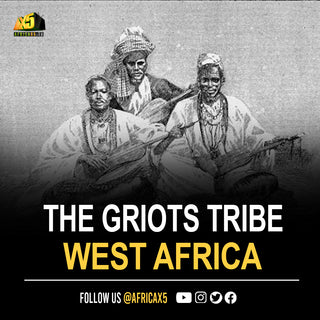"As a ruler", said the griots to the Songhai prince, "you'll be quite happy, tolerant and generous. At the end of your life, you'll go blind. You'll have many sons. But when you are gone, they'll no longer walk the straight path. They'll bring devastation to your kingdom..." These words saddened the prince. He remained silent for a long moment. Then he let out a profound sigh, like the mourning of a father who's just lost a son.
The griots were the custodians of the traditions, mystics and history of West Africa. Unlike the scribes of Timbuktu who recorded history in writing, the stories of the griots were passed orally from generation to generation. This was a time of mysteries, when men were reputed to be able to speak with spirits. The griots of the Songhai empire were often consulted by the kings and princes of West Africa.
Askia Mohammed was the emperor of the Songhai empire in 1493 CE, and the griots related the above vision of coming times to him. According to the TARIKH AL FATASH(the chronicles of the seeker, written by the scribes of Timbuktu in medieval times), Askia Mohammed was the greatest of all Songhai Kings. He was reputed to be a 'shrewd diplomat and an administrator' who united the 24 tribes of the Songhai empire after the death of Sunni Ali, whom the TARIKH AL SUDAN had described as "the Sunni Ali, the notorious evildoer, the acursed... who had killed so many that only God the most high knows," because of his ruthlessness and repressive rule.
As the griots had envisioned, Askia Mohammed became blind towards the end of his life and had to depend on his royal vizier. He had 37 sons, according to the chronicles of Timbuktu but according to oral tradition, his son's were over 500. These sons struggled among themselves to be his successor. Eventually, his son, known as Askia Musa became impatient. He was described by the chronicles as an 'inpudent and stupid boy... spoiled by life of royal luxury.'
He moved to seize his father's crown, deposing Askia Mohammed and banishing the blind old man to a mosquitoes ridden island in the middle of the Niger River.
Askia Musa went on to kill several of his brothers and 30 of his cousins who protested. Some in battle, others through assassinations. Eventually he, himself was killed in 1531 CE. The empire erupted into crisis that climaxed into a collapse in 1593 CE. By this time, the Portuguese had arrived West Africa and had began building trading forts along the coastal areas.



